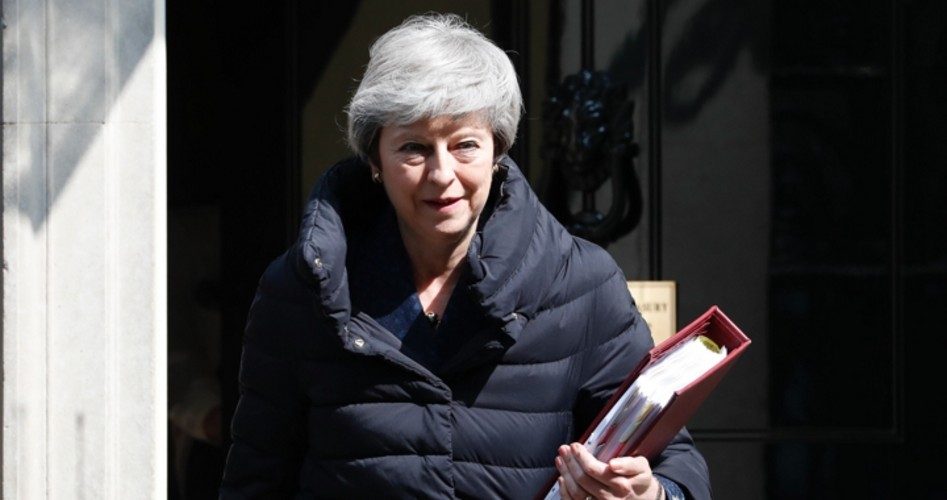
Nothing surprises any more in the chaotic mess that is Brexit.
Amid a crisis in confidence in Prime Minister Theresa May’s government, and calls for her to resign, she continues to fight for a Brexit deal, which will, nearly three years after the initial vote, finally extricate the United Kingdom from the European Union. All options are on the table, including one, which May has previously said would threaten the “social cohesion” of the U.K: May and advisors are said to have secretly “war gamed” the possibility of another Brexit referendum.
Currently, May is said to be close to offering the Labour Party a comprehensive but temporary “customs arrangement,” which would theoretically last until the next general election. After that election, the winning party could decide on a more permanent arrangement with the EU.
Reportedly, the new referendum idea will only come into play if the ongoing talks with the Labour Party break down and no deal can be reached. But many in the Labour Party have said they will back no deal going forward unless the issue is put back to the public in a referendum. More than a hundred Labour MPs have signed a letter that they would not back a Tory/Labour deal unless it was put to the people in a new referendum.
There is also pushback on a Tory/Labour deal from May’s own party. Nigel Evans of the powerful 1922 Committee of Tory backbenchers claims that “more than a 100” Tory MPs would “never support” a customs deal like the one the Labour Party insists upon.
So, it seems that the prime minister may have painted herself into a corner.
The new referendum would reportedly give voters an option of three outcomes: Leave the EU with May’s current and widely disliked Chequers Plan — called a “soft Brexit” by hardliners. Leave the EU with no deal, which doomsayers claim will cause an economic upheaval in the country. Or, stay in the European Union, which would nullify the original 2016 vote.
That British citizens are extremely unhappy with both major parties, Labour and the Tories, is evidenced by how they did in recent local elections. More than 1,300 Tory councillors were voted out, and the party lost control of 44 local councils. Labour losses were much less severe, but they lost 82 councillors and control of six local councils.
And today comes more unwelcome news as David Lidington, the current Minister for the Cabinet Office, has said that the EU elections, which the country had hoped to avoid given they were supposed to leave the EU on March 29, would almost certainly be held on May 23. Today, May 7, is the deadline to register for the EU elections.
If no deal is reached prior to May 23, the U.K. is legally obligated to hold those elections, despite their plan to leave the EU. “Regrettably,” Lidington said today, it is “not going to be possible to finish that process” before the U.K. would have to take part in the elections. The estimated cost to taxpayers for holding these meaningless elections — meaningless if the U.K. ultimately leaves the EU that is — is £150 million. Should a Brexit plan be approved before June 30, the U.K. faces the possibility of holding EU elections and never seating its MEPs.
While other parties, including the new Brexit Party fronted by prominent Brexiteer Nigel Farage, have already launched efforts to fight the coming EU elections, the Conservative Party has yet to do so.
“We very much hoped that we would be able to get our exit sorted … so that those elections did not have to take place, but legally they do have to take place unless our withdrawal has been given legal effect,” Lidington said.
May continues to walk down the middle of the road instead of simply picking a side and staying with it. Her original deal attempted to make everyone happy, and the result was that no one was happy. A no-deal Brexit — which despite the fearmongering, both the U.K. and the EU are prepared for — remains the best option. It makes far more sense for the U.K. to negotiate future trade with the EU as a sovereign nation and not as a member-state in the throes of leaving the union.
Photo: AP Images



